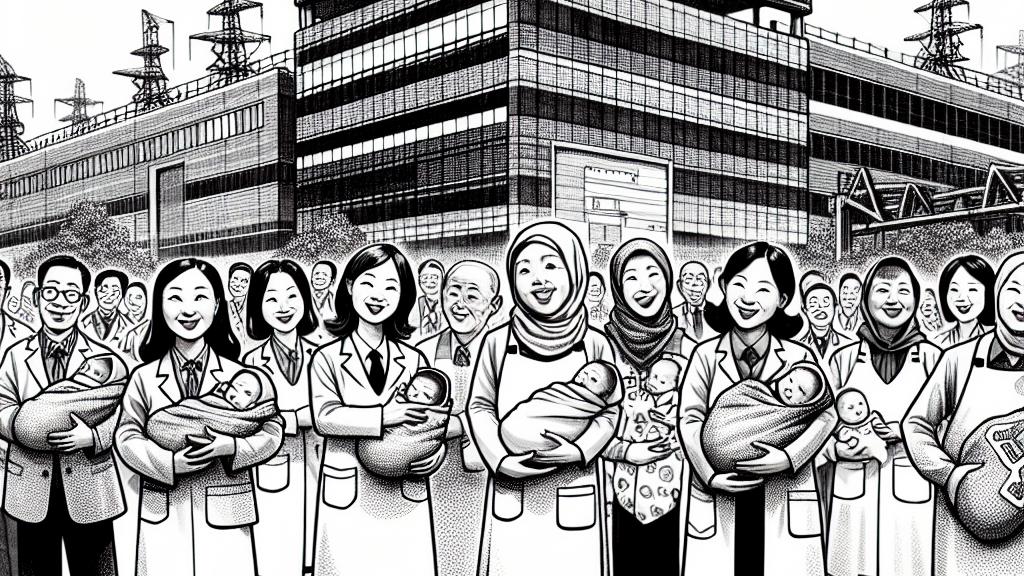Understanding the Impact of TSMC on Birth Rates in Taiwan
Overview
- Astonishingly, TSMC employees account for 1.8% of Taiwan's newborns, indicating a significant demographic influence.
- The company's innovative family support programs, such as on-site childcare services, play a crucial role in fostering employee parenting.
- Economic stability and a nurturing workplace culture contribute significantly to the rising birth rates among TSMC staff.

A Remarkable Shift in Birth Rates
In Taiwan, a fascinating demographic trend is emerging at TSMC, the world’s largest semiconductor manufacturer. Did you know that employees at TSMC make up a remarkable 1.8% of all newborns in Taiwan? This statistic translates to 1 in every 50 babies born in the country having TSMC as a parent company. This is particularly striking when you consider that Taiwan's general birth rate is only 0.87 children per woman. So, how does a company that constitutes just 0.3% of the population have such a monumental impact on birth rates? The answer lies in TSMC's dedicated efforts to create a family-supportive environment.
Innovative Family Support Programs That Make a Difference
The impressive rise in birth rates at TSMC can be largely attributed to their pioneering 'TSMC Childcare Benefits Program 2.0.' This unique initiative gives employees easy access to childcare services from 7 AM to 8 PM, significantly easing the burden on working parents. Additionally, TSMC has thoughtfully established on-site kindergartens specifically designed for children aged 2 to 6, allowing parents to conveniently drop off their kids right where they work. But it doesn’t stop there; the company also promotes a culture that encourages family growth. Flexible working hours and generous maternity leave policies—up to 20 weeks for third-time moms—empower employees to balance their careers and family life without feeling overwhelmed. These efforts showcase TSMC's commitment to nurturing a workplace where parenthood is both embraced and supported.
The Role of Economic Security and Workplace Culture
Furthermore, the economic stability associated with TSMC employment significantly impacts parenting decisions. Employees typically earn more than the average Taiwanese worker, which enhances their ability to provide for larger families. Take a moment to think about it: many individuals in Hsinchu, where TSMC is located, see parenthood as an achievable and rewarding endeavor. They draw inspiration not only from the supportive policies of the company but also from observing their colleagues successfully manage the dual roles of employee and parent. This culture fosters a positive environment, generating a ripple effect where one success story inspires another. Interestingly, similar findings in regions like South Tyrol, Italy, demonstrate how comprehensive childcare policies can lead to higher birth rates, strongly supporting the notion that fostering family-friendly environments can effectively cultivate growth in family size.

Loading...